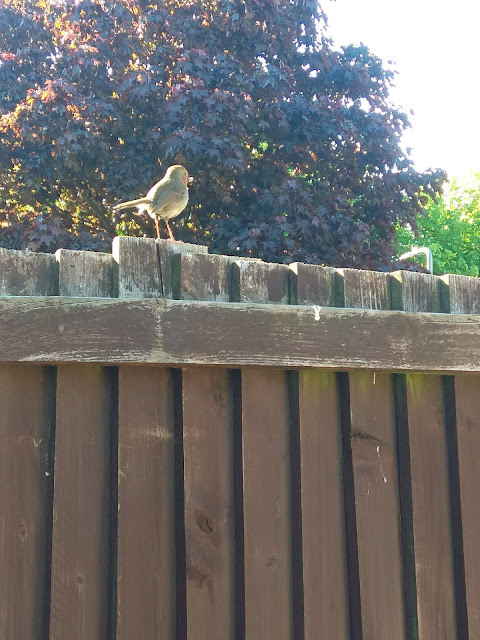Knitting socks, scarves and sweaters
October 4
The beetles and bugs and butterflies line up before the little tubs of paint at 10 past 10 every night and one by one dip their little feet into the tubs of yellow, red, orange and brown. Some choose one color but others mix and match and then they all spread out, across the asphalt, grass, ground, up the tree trunks and onto the leaves, changing the green into colors of autumn. Yellow like marigolds, orange like the rust that lines the windows of houses near the sea, deep red like black cherries, brown like your eyes.
Trees with their tops still green and the lower branches ready to flick off rows of brown, the leaves still green in the middle but toasted around the edges. I love the red trees, with all their leaves drenched in shades of cerise and maroon but I think I love the trees that are in between, peachy, soft pink-orange colored, even more.
There have been frequent robberies around our neighborhoods in the past two weeks. Somebody got whacked with a tennis racket! Most of the social workers/public health students who hear this burst out laughing. Which is definitely very unsocial worky, I’m sure. I think it may be our classes which are starting to grate on many nerves. I’m learning a lot for sure but there are moments in which I want to roll my eyes like I used to when I was 7. For instance, today one of my readings was about adultism – discriminating against children because of their age and not giving them the respect they deserve and giving them the right to vote and what not. It was well-argued, I felt, but just the whole lens of oppression that we have to wear for our social justice class is getting me down in the dumps.
The problem with wearing any lens is that then you can only see through this lens and the entire world is the same color. It is important to understand how language and knowledge is exploited and used and is a powerful tool in creating power dynamics but there has to be a line drawn somewhere otherwise we will be too scared to say anything.
Everything is so fucking politically correct here.
I miss my city. When I think of Karachi, I imagine the sea, the gray waves topped with foam stretching endlessly into the distance, the clouds that hang low over the city and move incessantly, spinning above in the saturated skies, I can feel the breeze and I can hear the trees in my street rustle. I picture the curved yellow M at the beach and even the little sandy-haired children selling disgusting gum and cajoling half-eaten burgers, coffee and ice cream from people are part of a melancholic nostalgia.
Thousands of miles away, I forget the daily crime statistics, the fear that erupts in little beads of sweat every time two people sitting on a motorcycle come up close to your car after 8 pm, the honking that starts two seconds before the red light turns green, the power outages, the stench of dead fish that the breeze casually pushes into your house from time to time. Being away from home, I’m cautious about putting these images up for others to see. I know prejudice, hate, terror, violence exists in my society and my country but everybody already knows about these pictures. I want to put up other pictures in this album labeled Pakistan.
I want to photograph the man who sits perched on three motorcycles outside a bakery and helps me park my car in a tight spot, I want to write about the artist who goes around the city drawing pictures of love, change, struggle, I want to talk about the café where you can sing, play scrabble or just dream about peace. A man selling paapurr gives two girls a lighter because the sea breeze is too wild to light a cigarette with matches, the nachos at Atrium taste so good, the children in the apartments come out to dance when it rains, a teenager qualifies for freestyle football in an international competition, old boys, young boys play cricket late at night under a million stars and twenty street lights, a baby zebra comes into the world and survives, a thousand turtles are saved, engineering students design an environmentally-friendly car, a paper boat floats in a tub of soapy water.
This African woman talked about the dangers of a ‘single story’ – how certain dominant, prevalent images and mass media can define countries or people or anything in a certain way and it struck all the chords in my heart. Who gets to define your story? What happens if you don’t pick up the pen, speak out, hold up your hand and say, wait a minute, that’s not it. There’s more to it than that.
The trouble with stereotypes, the lady said, is not that they’re untrue but that they’re incomplete.
Which made me wonder about my part in changing the pieces of the puzzle so that it resembles the sea, the sky, the clouds and the pappur man more…
Say hi to my city for me.


Comments
Post a Comment